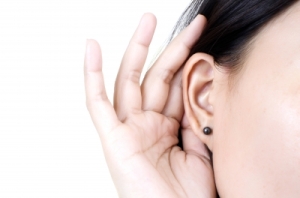
Image Courtesy of freedigitalphotos.net/Ohmega1982
Last year, the Illinois Supreme Court in People v. Clark and People v. Melango, struck down the state eavesdropping statute as unconstitutional because it violated the First Amendment. Several months later, the Illinois’ General Assembly amended and passed a revised eavesdropping law, which took effect December 30, 2014.
The current eavesdropping statute prohibits using an eavesdropping device, such as a cell phone or voice recorder, to record a private conversation in a “surreptitious” manner. The court defined that an eavesdropping device is surreptitious as when it is done with stealth, deception, secrecy, or concealment. 720 ILCS 5/14-1(g).
The former eavesdropping statute criminalized the knowing and intentional use of “an eavesdropping device for the purpose of hearing or recording all or any part of any conversation” unless the persons to be recorded give consent. 720 ILCS 5/14-2(a)(1)(A). The general assembly defined conversation as “any oral communication between 2 or more persons” regardless of whether that communication was of “a private nature under circumstances justifying that expectation.” 720 ILCS 5/14-1(d).
The Illinois Supreme Court found that the above eavesdropping statute was unconstitutional because was overbroad in all circumstances and it prohibited people from recording public conversations, including interaction with police officers. The court found the “statute’s blanket ban on audio recordings sweeps so broadly that it criminalizes a great deal of wholly innocent conduct.”
As a result of the court’s finding, the General Assembly proposed the amended law narrowing its scope to protecting conversations involving a reasonable expectation of privacy. A reasonable expectation “include[s] any expectation recognized by law, including, but not limited to, an expectation derived from a privilege, immunity, or right established by common law, Supreme Court rule, or the Illinois or United States Constitution.” 720 ILCS 5/14-1(e).
The amended eavesdropping law allows the “recording of police officers performing their duties in public places.” However, as criminal law commentators have noted, the Amendment broadens law enforcement powers because, during a criminal investigation, “a county state’s attorney can authorize the recording of a private conversation where one party has consented to such recording without a warrant or the consent of the other parties.”
Takeaway: Illinois is an all-party consent state. The amended statute did not change the requirement that all parties must given consent to the recording of private conversations, unless a government informant consents to the recording during the course of a criminal investigation. However, citizens can record police officer’s actions without their consent because the officer is performing a public duty in a public place.
Call Laura with questions about the Illinois eavesdropping law and don’t forget to let us know what you think in the comments!


Does this mean that a business conversation in a crowded restaurant cannot be recorded legally by one of the participants who happens to be the president of this company without notifying everyone else at the table while in illinois?